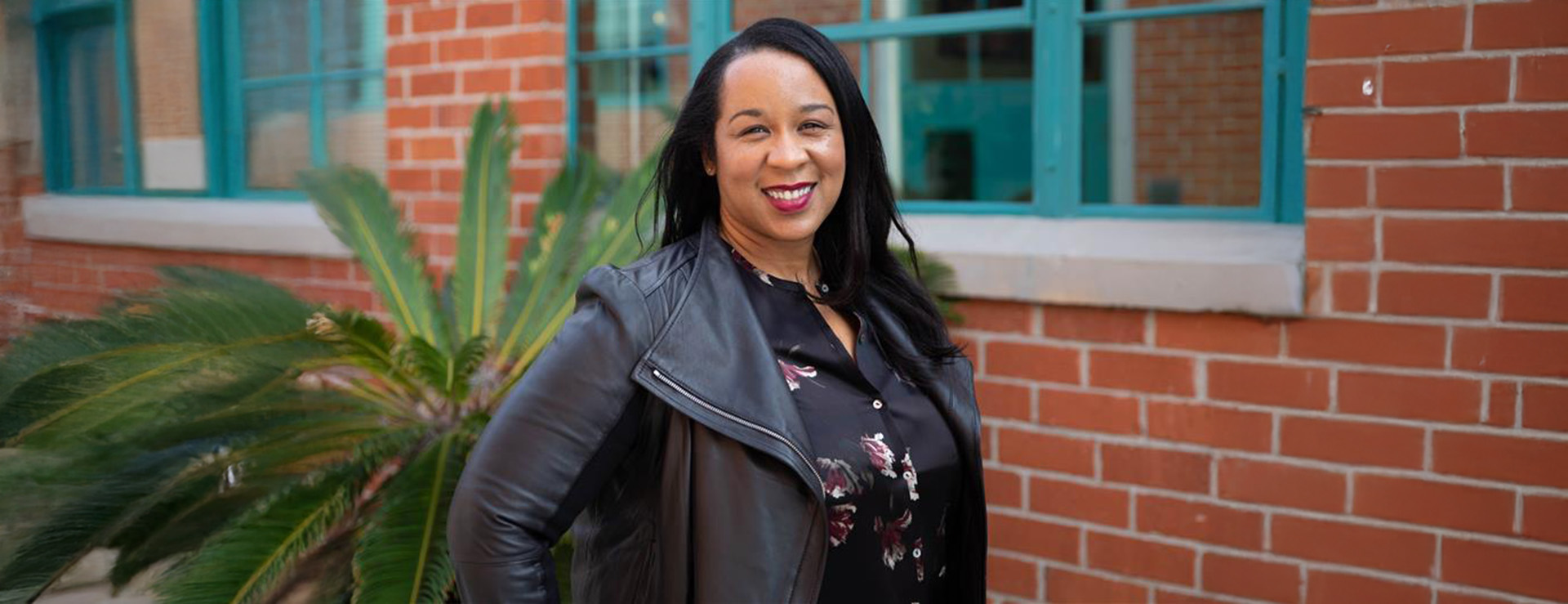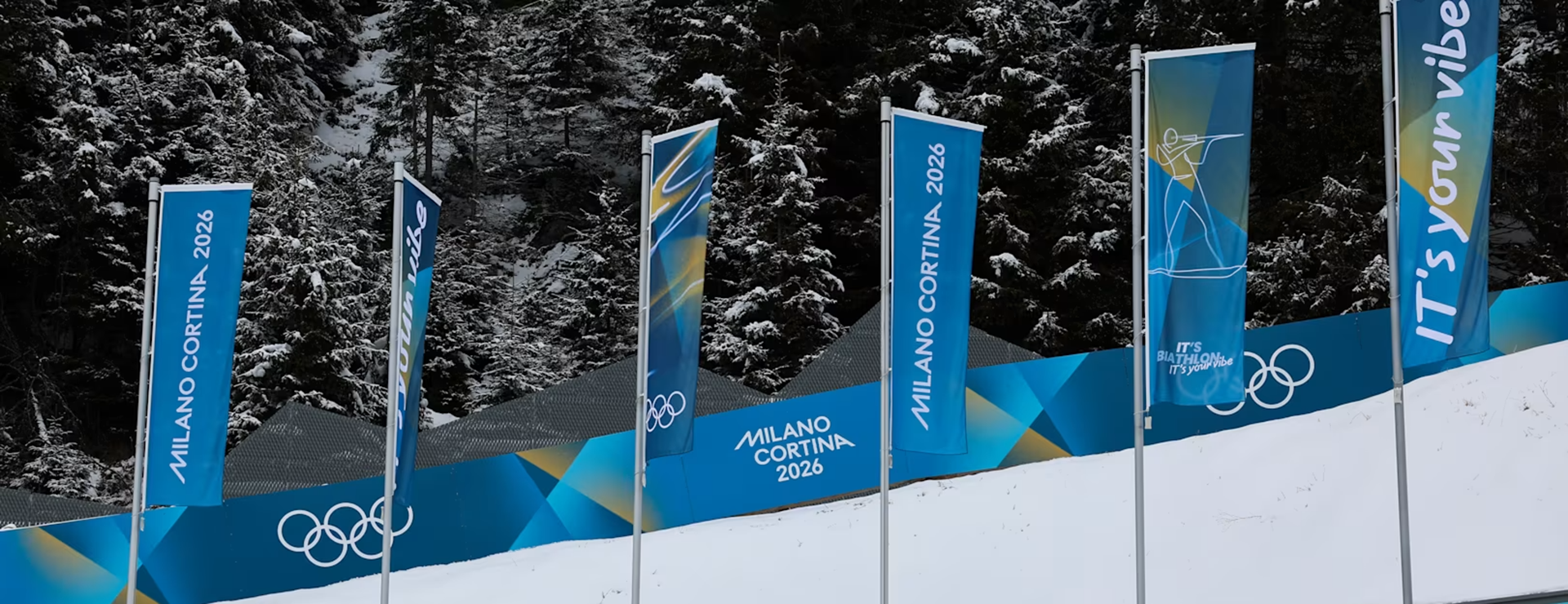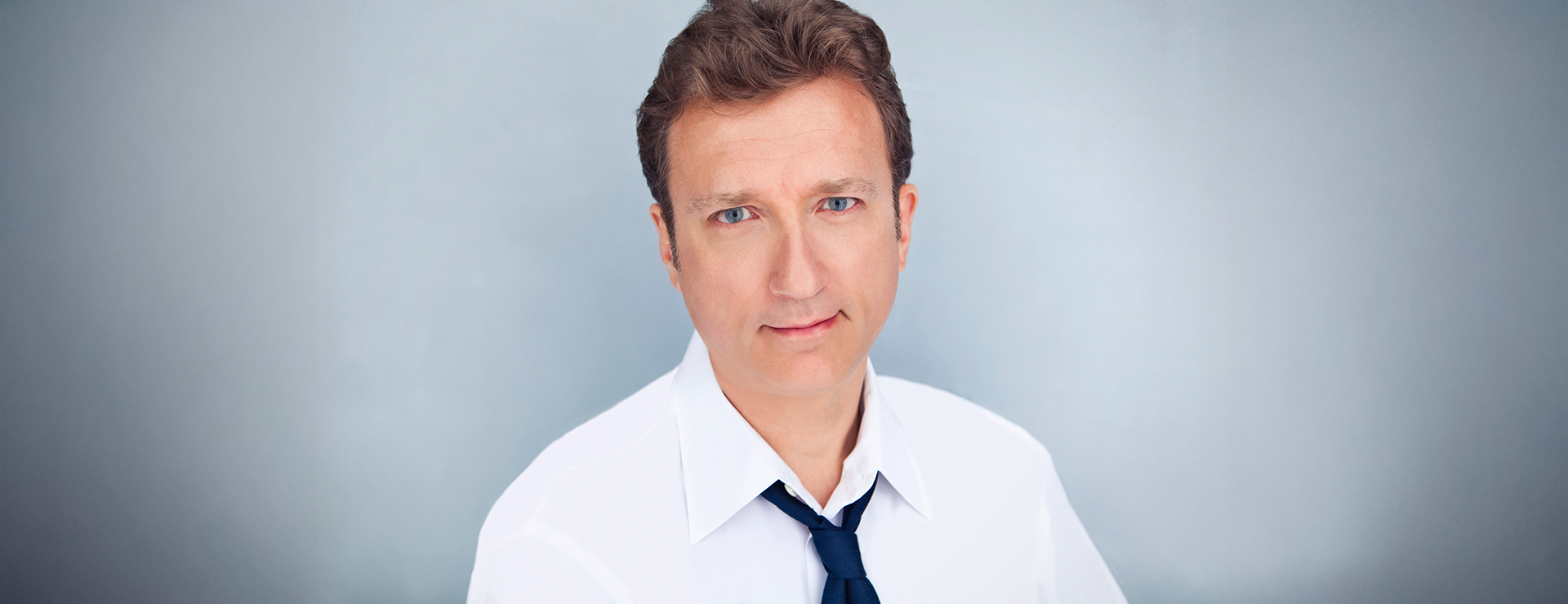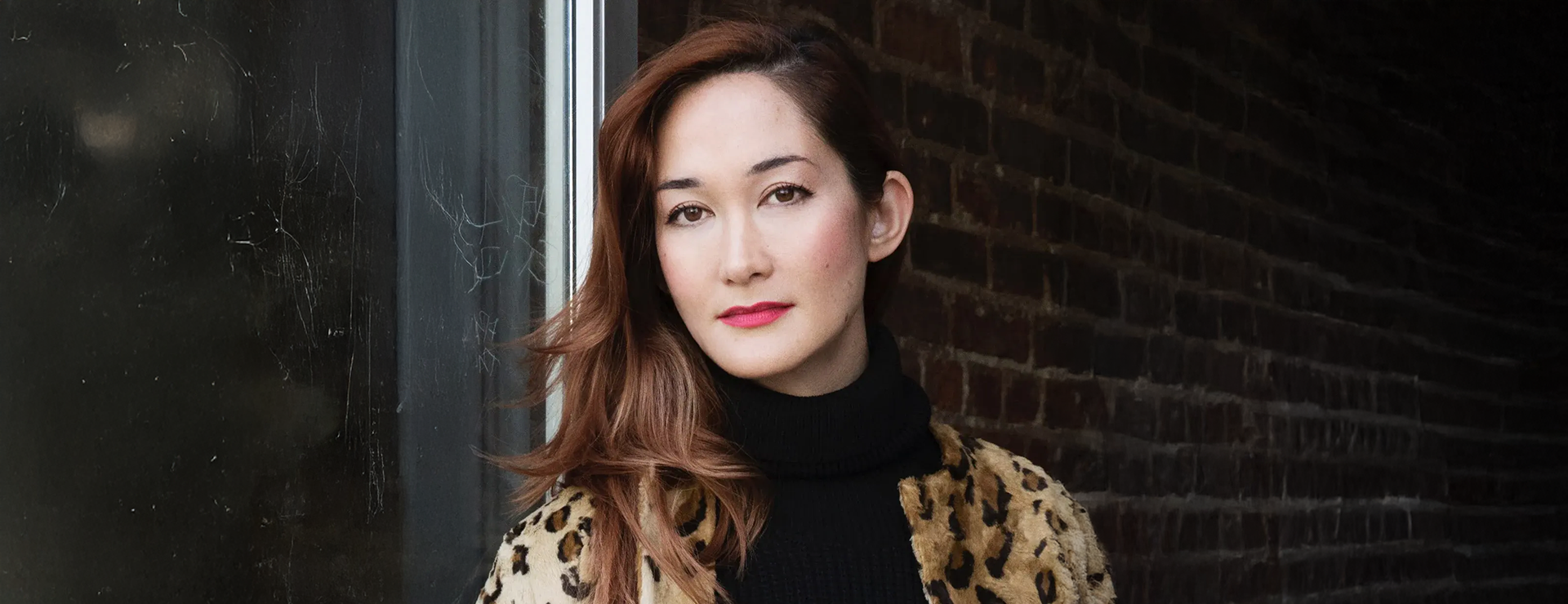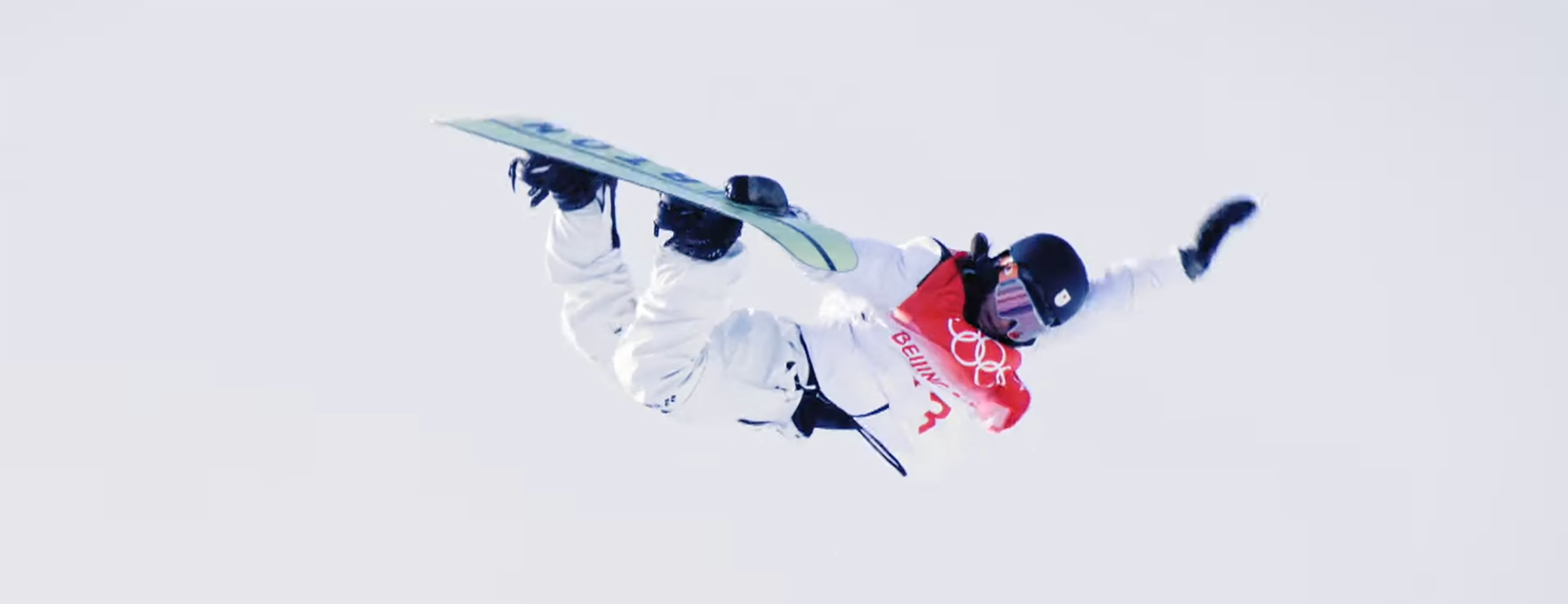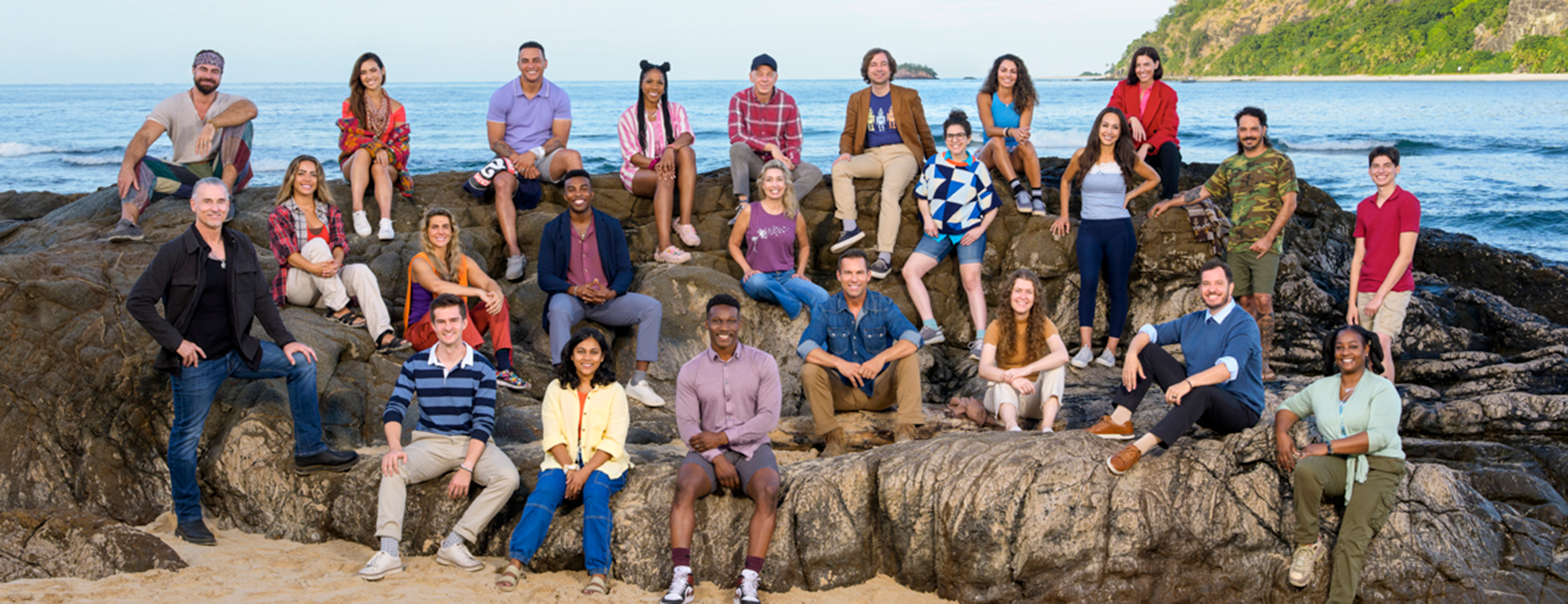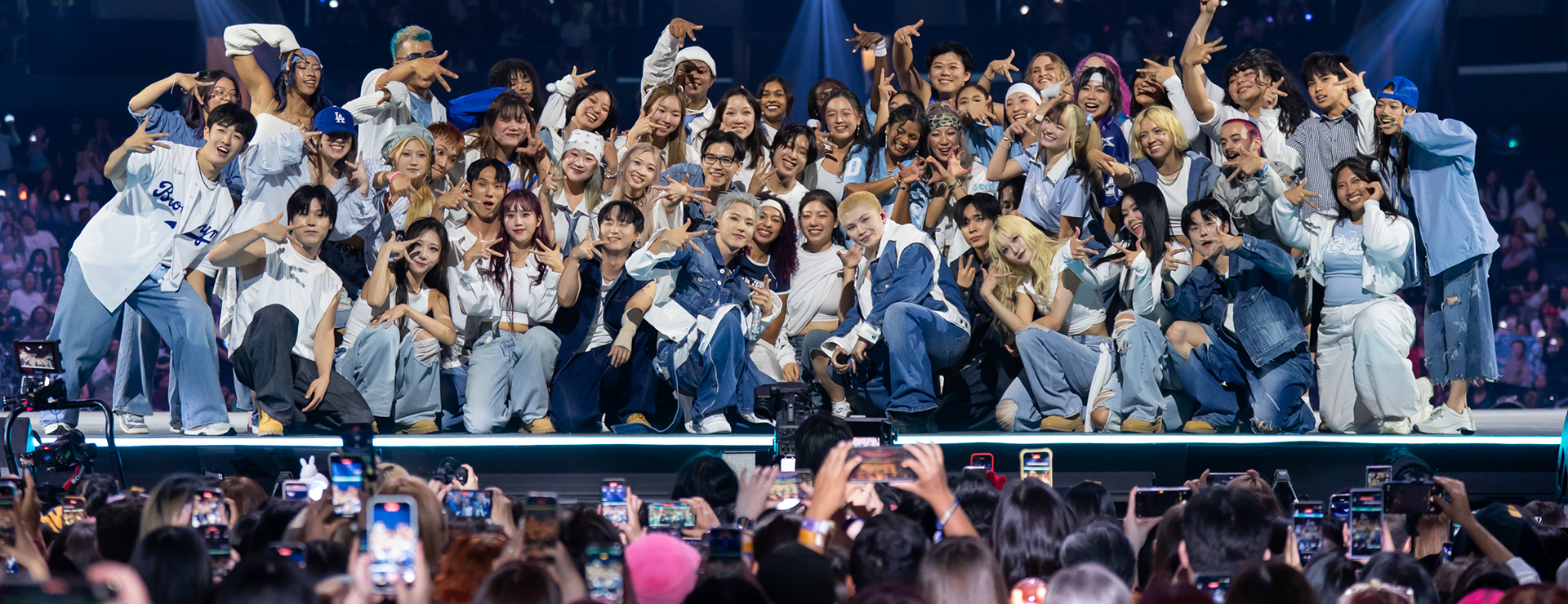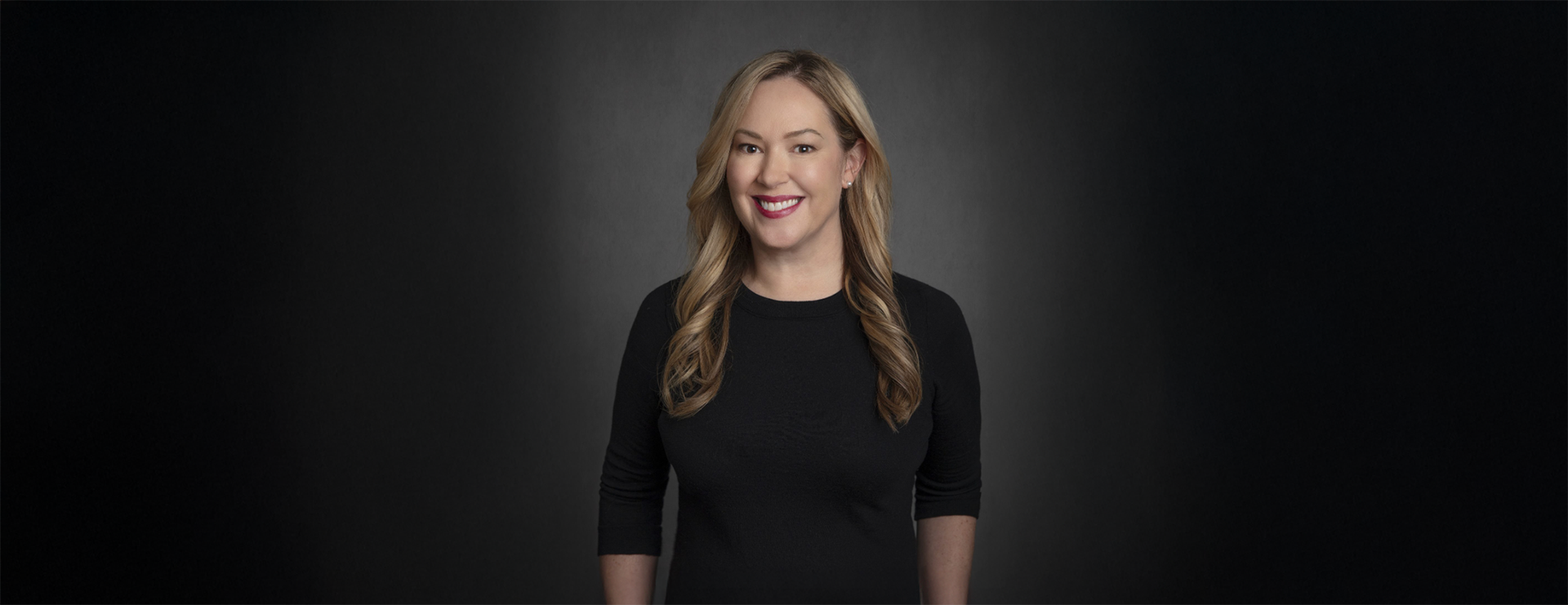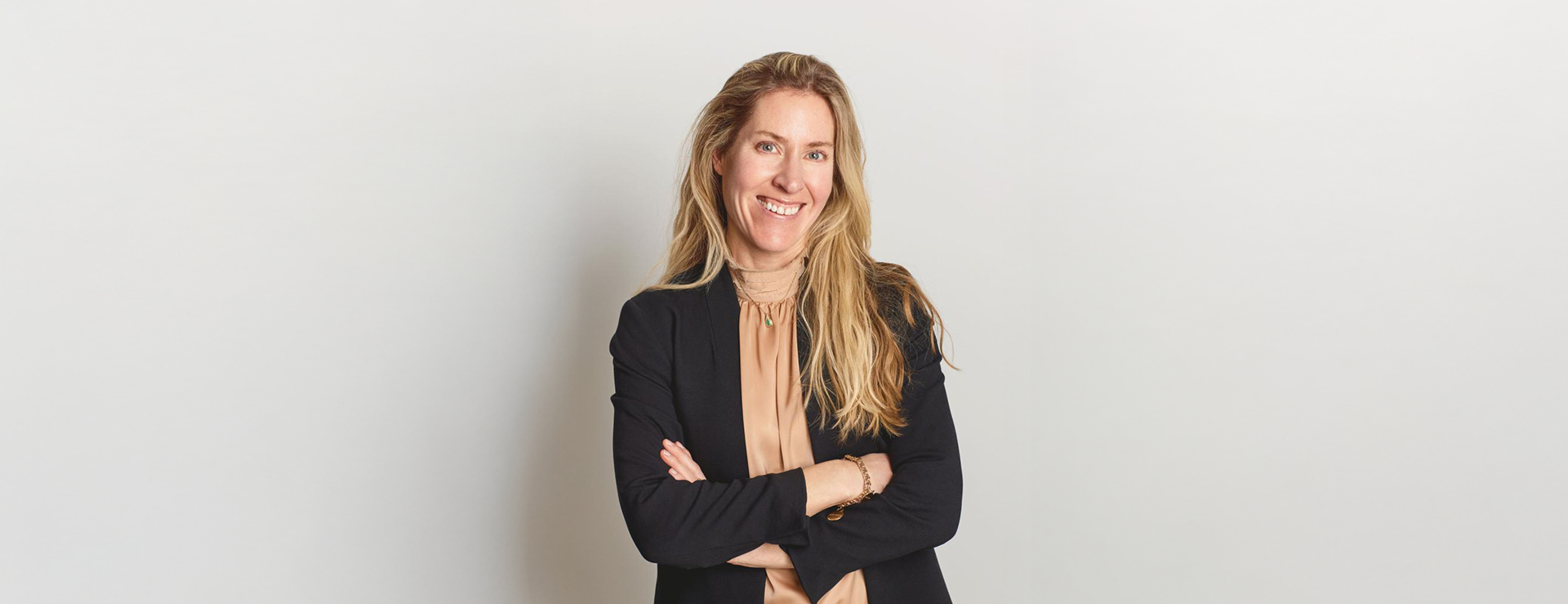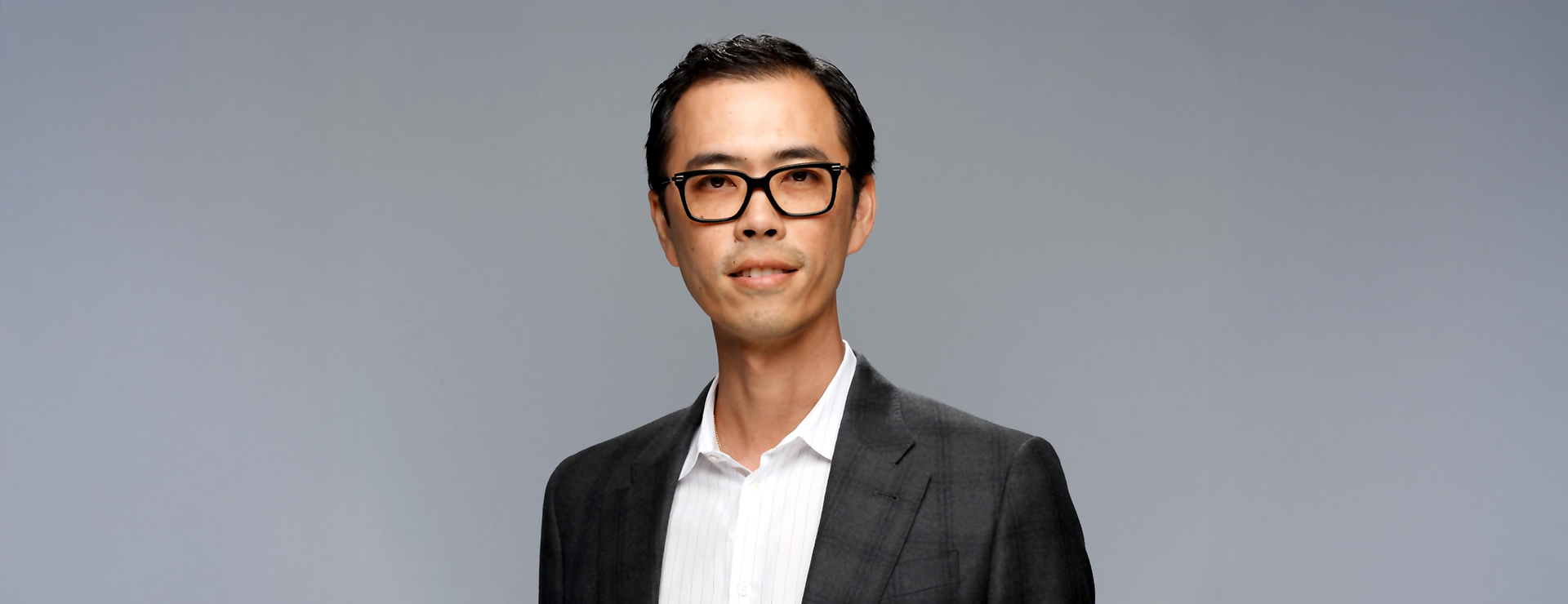Erica Coates has worked in production throughout her entire career, but her approach to production has changed with each new job and new move up the ladder, including stints at Sony Pictures Television and Digital Kitchen. Now president of brand and social at Los Angeles-based creative agency Mocean, three-time North America Agency of the Year, Coates has seen all of her skills and experience coalesce in one role.
In the six years since Coates joined Mocean, the agency has evolved from being mostly a trailer shop to a full-service agency that handles everything from brand strategy to television and digital campaigns to experiential activation and social-media deployment. Recently, it has worked on such theatrical blockbusters as Sinners, F1 and Jurassic World Rebirth, just to name a few. That evolution has been a team effort but Coates has lent her will, focus, discipline and muscle along the way.
Coates joined Spotlight to discuss her contributions to Mocean’s expansion into a full-service and 360-degree agency as well as the transformation of the industry around her.
Read the edited interview with Coates below:
Spotlight: How was Mocean able to accomplish its goal of expanding beyond movie and TV trailers?
Coates: It was really an openness to being flexible. We're the consumers of our own product, and so we know what audiences are gravitating toward, and we can see how behaviors are changing.
When I came here in 2019, we didn't really have a social discipline to speak of, and I saw that as a huge gap even back then. Yes, we were creating AV content that was being distributed on social but we weren't yet creating bespoke social campaigns that really spoke to digitally native audiences, and that took advantage of viewing or content patterns.
Throughout my career, I have really seen how harnessing the newest platform or technology was the best way to future-proof your company. Our first social hire started two weeks before we all went home for the pandemic. Thank goodness we had them on board because people were now on their phones all the time, scrolling to figure out what the next piece of streaming content would be to divert their minds as they were dealing with all of that.
Our division exploded during that time when other parts of the industry were really suffering. We’ve continued to leverage that. In keeping with the spirit of being nimble, social has changed so much since it first started. Back then, it was all about beautiful, static and arresting imagery and now it’s all about video content. At first, it was premium video content. Now, it’s all content creators and it needs to feel authentic and not too precious.That's the content that's performing the best.
Even in these few short years, we've had to adjust. We were doing a lot of augmented and virtual reality. Now we're doing physical events, capturing those and amplifying them in social media. It’s always changing. Everything is much more nimble and the audiences are too.
Spotlight: Can you think of any recent examples of that?
Coates: Our client, North Italia, is a restaurant chain, but their premise is that whenever you're in one of their restaurants it's reflective of the community they're in. So whether it's Miami or El Segundo or Atlanta, it all feels bespoke.
They were trying to amplify their patronage in Austin, and it coincidentally coincided with South by Southwest to do a Pi Day campaign on March 14 because they are an Italian restaurant that offers pizza pie. We put on this big stunt for them, where we had BMX and motocross events, and we had tattoo artists giving permanent tattoos to guests, while guests were served cocktails and pizzas. People were organically sharing on social that it was such a great experience.
We also did an event with North Italia at the Formula One race in Miami. We had our own mini race track with cars and cocktails and street teams handing out samples. We made it such a spectacle that people wanted to share. Not only did it work for that local market, but it also helped increase sales across the country, because people saw people engaging with the brand and having fun.
We also collaborated with HBO for The Penguin last year at Comic-Con. And we did a Ferris wheel takeover in multiple cities, for Hulu’s Love, Victor.
Spotlight: Are you seeing brands collaborate more with entertainment companies or has that always been a thing?
Coates: I think it's always been a thing, but I think it's more of a priority now. I think Barbie really showed what brands could accomplish by partnering with the right entertainment property. Barbie was able to touch almost every brand, across almost every demographic and really permeate the culture. It was a brand that was able to create lift. There will be very few pieces of entertainment IP that have that much significance but that’s what everyone is chasing.
Spotlight: I think for a lot of agencies the pandemic and the resulting industry disruption were really challenging, but it seems like Mocean thrived during that time and beyond. How do you feel Mocean has been able to take advantage of the changes in the industry and kind of ride the waves of change?
Coates: When I first started, we had a theatrical group and we had a streaming group. Because we had those capabilities, and because we were very in touch with how client behaviors might be different and how their expectations or timelines might be different, we were well-equipped to adjust. We've also been highly integrated. We spend a lot of time thinking about the future. When we see an inkling of a trend, we're thinking, how's that going to affect us in six months, in a year, in five years? And while none of us have a crystal ball, we're always trying to develop contingencies so we can best serve our clients, but also ourselves.
Spotlight: Obviously, everyone is talking about AI. What are some trends, including AI, that you're seeing that you think are going to come into play anywhere from the next six months to the next five years?
Coates I think there's a convergence coming of all of our entertainment experiences that will culminate in a single platform. With AI, there are really strong opinions about whether to adopt it or resist it, but it's a tool. When I was in college, I was fascinated by the process of filmmaking and I worked with a producer who was very old school. He would shoot on film and print out the film and hand-splice it. When I got into the real world, I realized that that was romantic but in truth I was so glad to have Final Cut or Avid to help me do my job.
I think that's the same with AI. It's a tool but you also still need people who can ideate, who can curate. The tool can't replace human ingenuity or thought and it can't produce emotion. So we at Mocean are full forward force on adopting AI into our workflows and into our creative ideation, trying to find ways to build efficiency so that menial tasks become more efficient, and so our teams can spend their time learning the craft of making and not doing menial things that don’t add much value in the long run.
Spotlight: What do you think brands should know in terms of best practices for working with entertainment companies?
Coates: Make sure that your brand values or the audience that you're trying to reach closely aligns with that IP, because you don't want there to be a disconnect between whatever it is that you're trying to promote – product or service – and that IP. You want to align those things as much as you can to ensure that success, so that you're actually reaching that target audience.
Spotlight: Something I hear people talk about a lot is how they can bring new talent into this industry. How do you think we can encourage new talent?
Coates: First, the talent has to know that this industry exists. Mocean has always had a really strong internship program. It’s been a priority of [executive chairman] Craig [Murray]’s and we’ve seen it reap tremendous benefits. We also partner with multiple organizations. We’re partnered with Netflix and the Otis School of Design on a program called Access. We just had our first round of interns this year from that program and we’re happy to say that we hired one of them.
RELATED: Gravillis Celebrates 25 Years of Making Movie-Poster Magic
There’s also a program that we participate in called Ghetto Film School, and they reach out to students in high school or young people who haven't had the opportunity to attend college. And then within our own organization, we have a program called Shift, and that's for our live-action production discipline. We get people with minimal experience in different crew positions and we partner them with someone who's more experienced. We're basically doubling the line on certain roles so that we can help people who are in unrepresented communities. We're really proud of that initiative as well.
Spotlight: What do you feel is the business advantage of having programs like these?
Coates: The demographic of the United States is very diverse. For entertainment marketing in particular, we see that the Latino audience and the Black audience are significant consumers of entertainment, so we'd be remiss in not having marketers or creatives on these teams that understand these audiences to better communicate with and reach them. We're also a Los Angeles- based agency. So we'd be remiss if our agency didn't reflect the demographic of the city that we're in.
From a business perspective, much of what we do is global and features people from different backgrounds. In order to service our clients well we need to reach those audience.,
Spotlight: What would you say was your own experience of being personally mentored as you've gone through your career? What kinds of things do you feel like helped you develop into the executive that are today?
Coates: Leadership at most of the organizations in which I've worked have been open to my curiosity. It's my personality that I am always learning, and I want to do more. I was that person who would stay later, come early, or ask a question, even if it wasn't part of my job. When I was young in my career, I had very senior executives that recognized that and gave me opportunities, exposing me to things outside of my job responsibilities or my distinct role.
That's helped me to learn. It's helped me to gain valuable experience that I wouldn't have been able to acquire if I had just done exactly what was in my job description. And I've had some really supportive men and women of all backgrounds support me and see me beyond the package that I'm as a person with a set of skills and passions as opposed to feeling like I was limited because there are not a lot of people that look like me in certain roles.
Spotlight: Extrapolating from that, if you were giving a young person advice in their career, what would you tell them to do if they said they were interested in an executive career like yours?
Coates: I would say stay curious, ask questions, take on additional responsibilities, and actually volunteer for those. You can get free training and free education if you are the one to always raise your hand. People want to help people that want to help themselves.
I'm experiencing that now. I get so much joy out of having an informational interview with a college person or someone who is new in their career because you get to see yourself reflected. Passion is contagious, and we all want to be around that energy, because it fuels us. So I would just always be learning, don't limit yourself. You may be in an entry-level role right now but perform that job to absolute excellence. And then find ways where you can add value.
Spotlight: Was that the case in your career? Were you given roles in which you felt like you had no idea what you were doing but you were willing to give it a shot? How did you approach those situations?
Coates: I understood that waiting for something to fall in my lap was not the best way to experience success. Taking advantage of opportunities was the best way for me to realize my goals. So when I was approached with an opportunity that I didn't know exactly how to do, I would say ‘yes’ and then I would learn. My personal brand is ‘I'm going to do it well, so I will ask the questions.’ I will figure out how to do it and I will also figure out how to do it well.
Spotlight: What are some things Mocean has done lately of which you are proudest?
Coates: I'm very proud of how we've been able to diversify our offering. Whether that’s working with Johnson & Johnson or launching the latest summer blockbuster like Jurassic World Rebirth or F1. There probably isn’t a film or a TV series that we haven’t touched in some way. I guess I’m most proud of our breadth but also our excellence in everything that we do. It makes you feel really proud to work in an organization that puts out such great work.
Spotlight: You said your personal brand is holding yourself to a high standard of excellence. Do you feel that by holding yourself to that standard, that trickles down?
Coates: I would hope so, like if we're going through a busy patch, I'm right there with the team rolling up my sleeves, providing support, providing direction and giving relief when people need time. That is my leadership style. I also get a lot of satisfaction, especially at this stage in my career, in seeing other people achieve their career aspirations. I feel like I’m in a mentorship role now and I’m really enjoying that aspect of my job.



